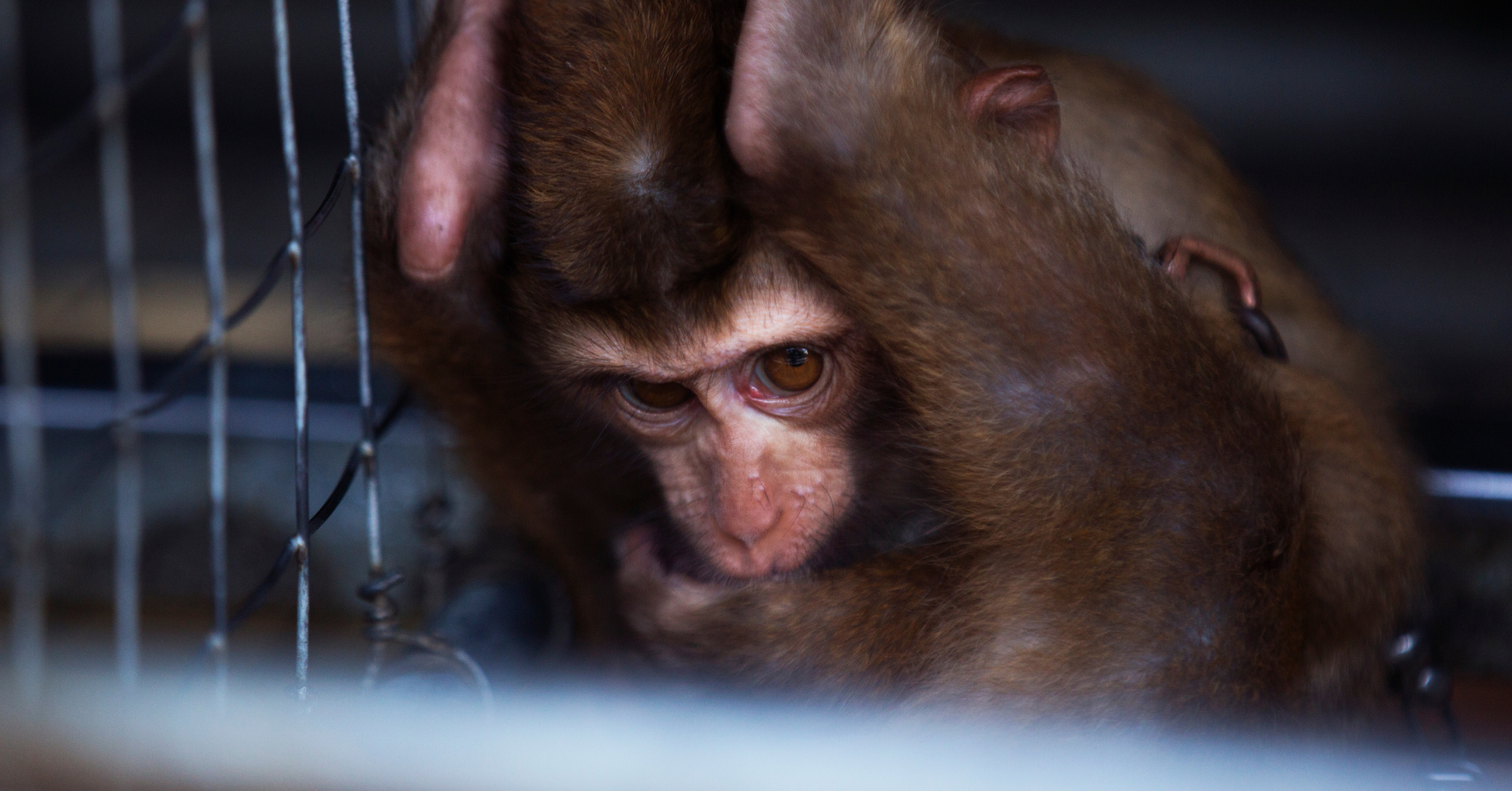
We are in the midst of International Macaque Week, an effort “dedicated to raising awareness of and empathy for one of the world’s most persecuted groups of primates”. Unfortunately, this remains an uphill battle – not only because animal exploiters do not want us to know what they do, but also because, despite macaques’ unique complexity, intelligence, and sociability, humans have tended to favor “more traditionally charismatic primates”, like great apes.
Human disregard for macaques stems from both anthropocentrism (as humans reserve their concern for animals deemed most “human like”) and callous, self-serving practicality.
Animal researchers themselves have explained that some scientists – perhaps “blinded by [their] ambitions for careers and legacies” – “collectively disregard animal subjectivity out of fear of the moral implications of experimenting on other sentient creatures”. In other words, animal researchers do not want to acknowledge or validate observations or sentiments that could call into question their use, torture, and killing of other animals.
And, this works to the continued detriment of the million-upon-millions of sentient beings whose lives intersect with these researchers’, including both nonhuman primates who were born wild and free and those who were brought into existence for the purpose of being used as test subjects.
Among nonhuman primates, macaques are animal researchers’ most common victims.
Many species of macaques find themselves peering out between the metal bars of laboratory cages, though the most typical victims are rhesus macaques, who have been used by human scientists for many decades and who have been described as a “‘basic monkey version’ of a laboratory rat” – this characterization betraying the grievous and scientifically unjustified discharge of researchers’ moral concern for sentient beings and conceding that, as a former animal researcher and primatologist has lamented, “‘[m]acaques are the “throwaway” monkey,’…”
Yet, at present and despite the magnitude of their exploitation, rhesus macaques are not “the most heavily traded primate for use in laboratories”. This tragic distinction belongs to long-tailed macaques, who have become:
the primary species used in toxicity tests carried out to assess the side effects of drugs or chemicals. This involves restraining the monkeys who are injected or dosed via a tube that is forced into their stomachs using a process called ‘gavaging’. This is done without an anaesthetic. The dosing can be daily for months or years with side effects including vomiting, [] internal bleeding, and death.
Pig-tailed macaques are also facing increasing commodification by researchers – and together with long-tailed macaques, with whom they are routinely used as “models” for “research on infectious diseases” – have become the subject of recent protection efforts due to plummeting wild populations.
(Though beyond our current scope, it is worth noting that crab-eating macaques were at the center of one of the most famous and mobilizing animal research investigations of all time.)

The “billion-dollar” trade in macaques for human “science” is being driven most heavily by one country: the United States.
The U.S. is the “world’s largest importer of primates for research” (as well as “the only country to have imported wild macaques since 2014”). Indeed:
- “[t]he smuggling of monkeys caught in the wild is believed to have been going on for years due to the colossal demand for laboratory monkeys in the U.S.”;
- “…exports to the U.S. represent the vast majority of reported live macaque trade”; and
- the “‘insane demand coming from the U.S. is driving the trade to an unsustainable level.’”
History tells us that the U.S. animal research industry will not stop (at least of its own accord) until no macaques remain free.
The U.S.’s exploitation of macaques is not the first time our domestic animal research industry has spearheaded the decimation of a wild population: it was not long ago that researchers insisted on using chimpanzees for biomedical experiments; and, in fact, by the late 1980s, “chimpanzees were in desperate trouble in the wild.” In response, the U.S. Fish and Wildlife Service announced its intention to “declare them endangered” (much as we are presently asking it to do for two species of macaques). The Service received 40,000+ letters in support of its intention and only six in opposition – of the latter, five were from biomedical researchers and two ‘came directly’ from the U.S. National Institutes of Health, the world’s largest funder of animal research].
Truth be told, this should have come as no surprise, as the U.S. government had long ago and blatantly flashed its total disregard for nonhuman primates. Case and point: early text of the Animal Welfare Act (the only federal law that provides any protections for nonhuman primates used as human test subjects) referred to nonhuman primates as “subhuman” and “infrahuman”.
Nonhuman primates are not less than or inferior to humans in any way – they are merely different from us, as we are from them – and we must fight to protect them from our speciesist government and the unethical animal research industry it helps constitute and champion.
You can do this right now, and thereby fittingly honor this year’s International Macaque Week, by taking action to stop an additional $10 million taxpayer dollars for primate breeding and experimentation.
Already taken action? Increase your impact now by sharing this page on Facebook or X (Twitter).